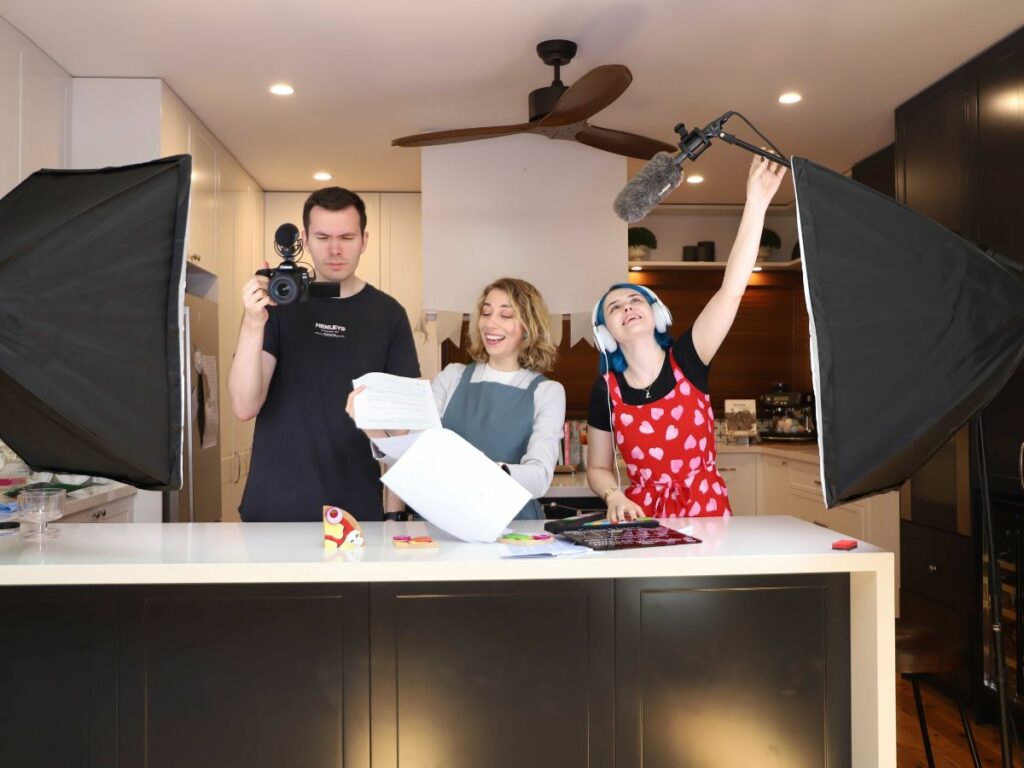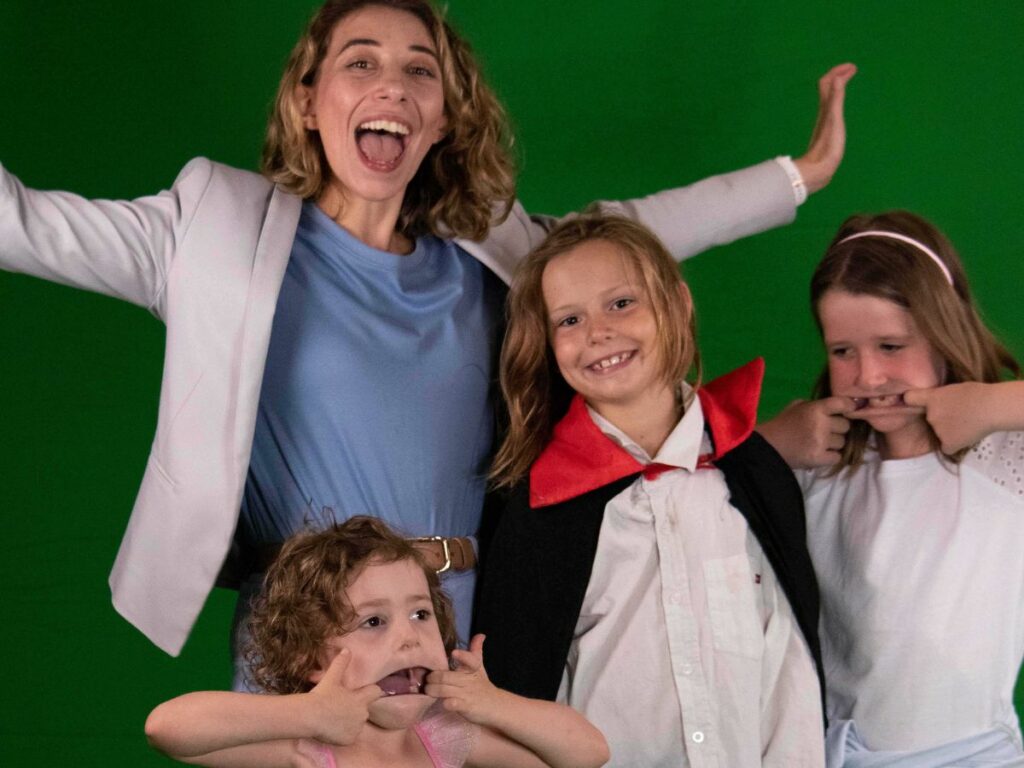Foundation for Rural & Regional Renewal (FRRR)
Pine Village is in the Murray River flood-affected region Murbko, South Australia. Pine Village Land & Services Management Association Incorporated represents members and associate members of Pine Village and they are passionate about maintaining facilities to the highest standard for the safety and enjoyment of everyone in their community.
The Association identified that access to emergency first-aid equipment needed to improve and decided to apply to the Small and Vital stream of the Strengthening Rural Communities program. They were awarded $3,704 to purchase and install an automatic defibrillator at Pine Village.
The grant also covered the cost of an outdoor storage cabinet and defibrillator-ready kit. To ensure the best possible health outcomes for Pine Village residents, and increase positive outcomes in an emergency, the defibrillator they chose guides first-time rescuers through the process.
The Association decided to mount the new life-saving equipment in an accessible location and place signage in the surrounding areas directing users to local emergency services and Association members with senior first-aid training.
Once volunteers installed the new equipment, a newsletter was sent out to people in the neighbourhood to raise awareness of the new defibrillator and it’s been well-received.
“Local support for the grant was tremendous, along with the number of members willing to assist with the installation. We are proud to have the AED available to the Murbko community as needed.”
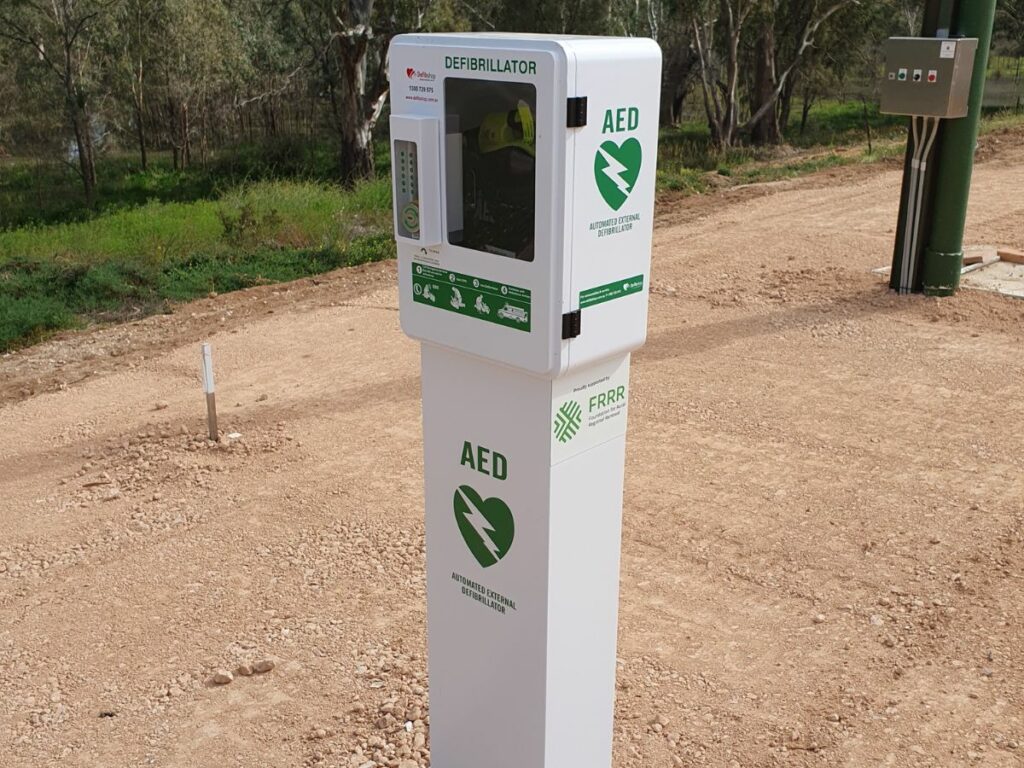
Ten years ago, when Alex was diagnosed with Coeliac Disease and two other autoimmune conditions, she quickly learned how tough it was to find safe, gluten-free food – especially in a regional town. But it wasn’t just about food; explaining her condition to others was a challenge too.
Her personal experience sparked the creation of “Jack the Silly-Yak,” a character initially brought to life in a children’s book to help young people understand Coeliac disease in a fun and approachable way. Jack the Silly-Yak soon became a live, interactive musical and imaginative play, performed to children in regional NSW.
From this work, Alex knew there was more to be done to make Jack the Silly-Yak more accessible to kids with chronic illnesses in other regional communities.
With the help of a $6,330 grant from FRRR through the Sally Foundation Trailblazers Development Fund, Alex was able to take Jack the Silly-Yak to a whole new level. Partnering with the Hunter Business Centre, they developed The Giggle and Learn program. This online program includes three music videos and three seven-minute episodes starring Jack. These episodes mix music, craft, cooking and community outreach to create something fun and educational for kids and their families. Plus, there are downloadable resources so families can easily access everything they need to learn about living with Coeliac Disease and other chronic illnesses.
The outcomes of the video program have been remarkable. Alex is thrilled with how well the program turned out, saying, “I’m so proud of the quality of this program and how it gives the same level of fun and information that my live shows do.”
The Jack the Silly-Yak grant project has successfully expanded the reach and impact of Alex’s original vision, ensuring that kids with chronic illnesses are not only seen and heard but also empowered and supported, no matter where they live.
The online program has made it possible for families across Australia to access critical information about living with chronic illnesses. Whether in a city or a remote regional town, children and their families can now learn about Coeliac disease and other conditions in an engaging and easily understandable format.
Through the project, Alex has been able to develop meaningful relationships within the gluten-free community. These connections have helped to strengthen the message and value of the program, ensuring that it resonates with families and communities alike, as well as helping to grow the audience and therefore increase awareness and representation of both Coeliac and non-Coeliac kids.
One of the most rewarding aspects of the project was the opportunity to support regional creatives, by providing paid and fulfilling work to four filmmakers and artists. Supporting local talent is a key focus for Alex, and she is committed to continuing this approach in future projects.
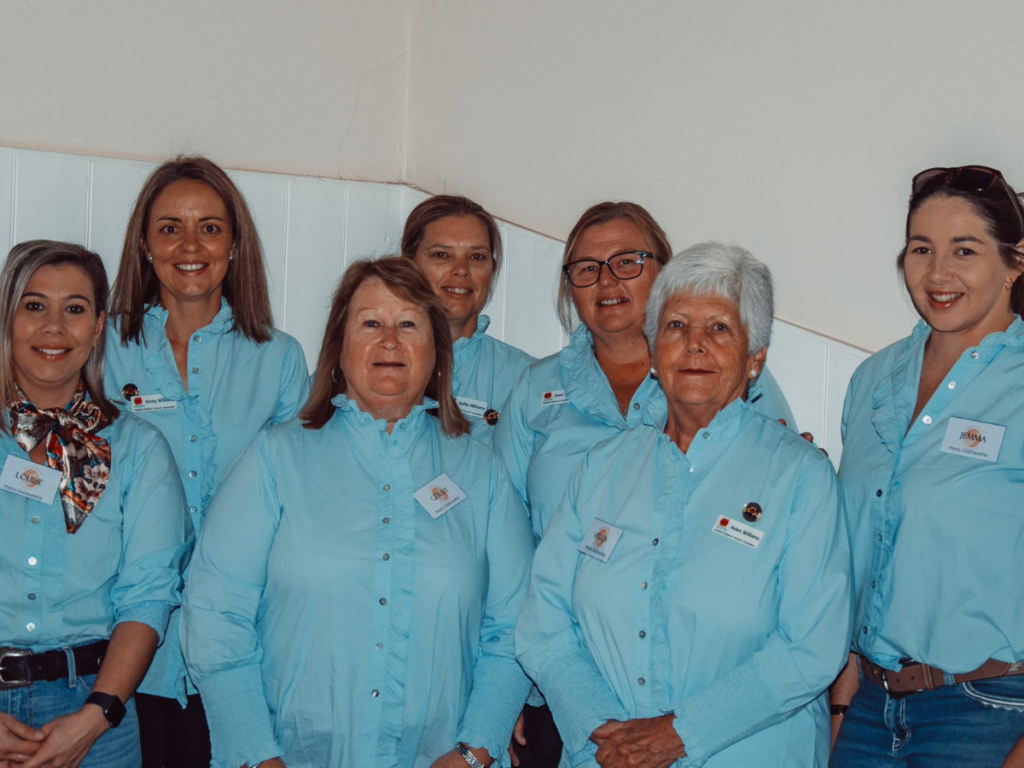
While the population of the South Australian Arid Lands is small, with just 24,000 people to a 525,000km2 area, there is a strong and proud community spirit. Many families and people volunteer in community and government-led organisations, on top of their personal responsibilities. In the face of severe drought conditions, it can be difficult to maintain this spirit of resilience. Between 2017 to 2020, the region experienced one of the worst droughts on record. Every landscape, community, business and family in the region continues to feel the impact of that drought to this day. Communities in this region must adapt and prepare for educating children in a very different way to their city counterparts, given the ever-changing impacts of seasonal weather, including drought.
Isolated Children’s Parents Association Marla-Oodnadatta (ICPA) is responsible for organising an annual state conference designed to enhance and enlighten agriculture-dependent communities and drive local action to assist in preparing for future challenges. This year’s ICPA conference was partially funded by a $5,000 FRRR grant awarded through the Community Impact Program, funded by the Australian Government’s Future Drought Fund as part of the Helping Regional Communities Prepare for Drought Initiative.
By hosting the conference in Quorn, the ICPA made it easier for their members throughout SA to voice any concerns in relation to educating geographically isolated children. They reported that 35 separate organisations and 150 individuals participated.
They also organised a family-friendly, post-conference event to attract and engage the involvement of more men and families in the ICPA. Festivities included a town treasure hunt put together by Rural Aid, face painting, glitter tattoos, an auction, and a 20/20 cricket game between the ICPA men and Quorn cricket club.
By securing the grant, ICPA enabled their volunteer member base to attend the conference at no charge, strengthening connections and setting themselves up well to achieve great outcomes long into the future.
Kirsty Williams, the Marla-Oodnadatta Branch President said that it is great to have support for regional and remote groups like the ICPA. “Being volunteers, the support of FRRR makes our job that little bit easier.”
The Kimba district was among the hardest hit by the destructive rain and floods of January 2022, which battered most of regional South Australia. Our Town Kimba (OTK) is a community-led initiative dedicated to enhancing community resilience in the face of mental health and wellbeing challenges. Acknowledging the necessity for heightened community engagement following the floods, particularly with local youth, OTK leveraged the FRRR ABC Heywire Youth Innovation Grant program to connect effectively with young individuals and empower them to lead a project within their town.
In collaboration with local high school students, OTK explored the 2022 Heywire Project Ideas, ultimately selecting the Fusion Festival idea as a resonant and beneficial initiative for local youth and the community. Fusion Festival posed the question of how to raise cultural awareness and stop racism in regional communities. OTK provided mentorship to the students throughout the grant application process, successfully securing a $10,000 to create their own community fusion festival, bringing together the tastes of Kimba to be shared through food, culture, dance and live music.
Kimba’s Fusion Festival was a youth-led, hands on experience from the very start. During the planning stages of the Festival, youth were given the opportunity to cultivate skills in event management. The project engaged mentors, educators and community members to guide the process and support the youth throughout.
The Festival, which was held in October 2023, had a profound impact on the 201 school students, kindergarten attendees and staff. Commencing with Indigenous cultural sharing, the day featured a diverse array of cultural experiences and activities, fostering conversations, learning and an appreciation for cultural diversity, all of which positively influenced individuals on personal and community levels. The Festival extended into the night, attracting over 300 people from the broader community. The lively atmosphere, diverse entertainment and communal meals contributed to a profound sense of belonging, pride and community unity.
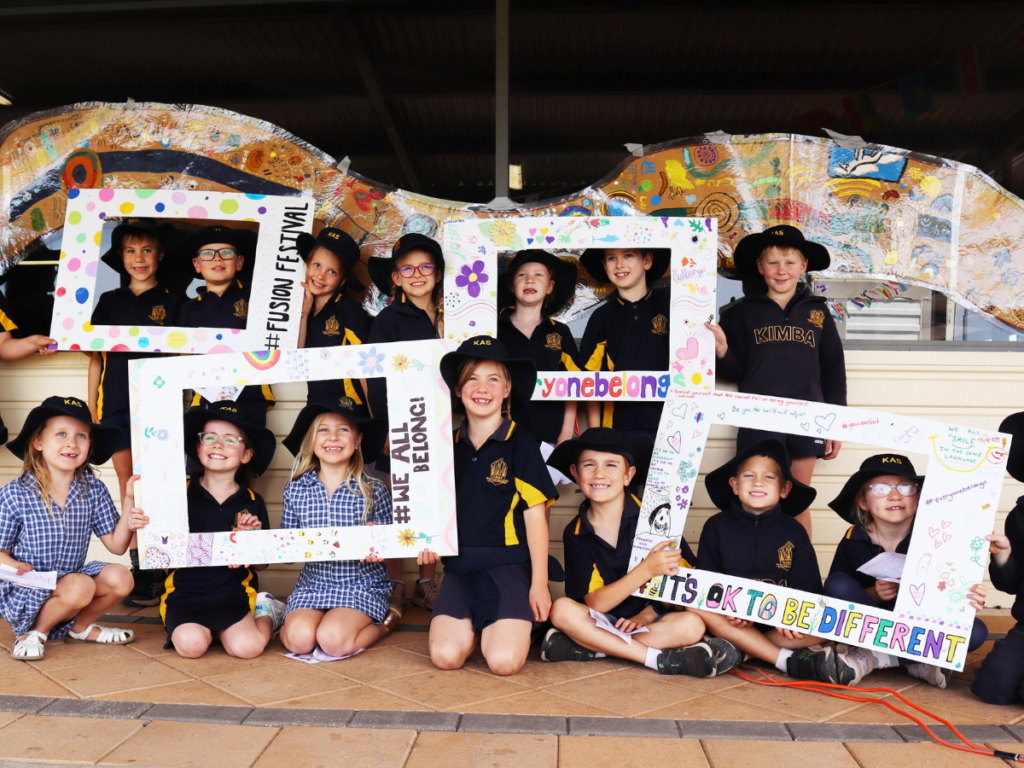
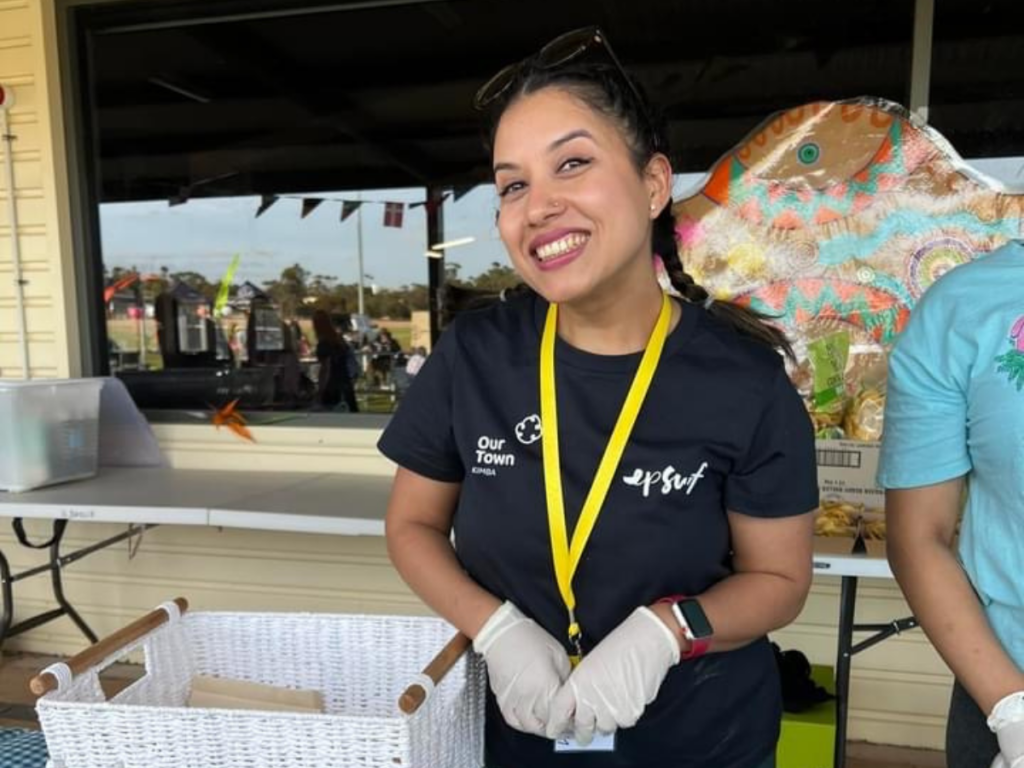
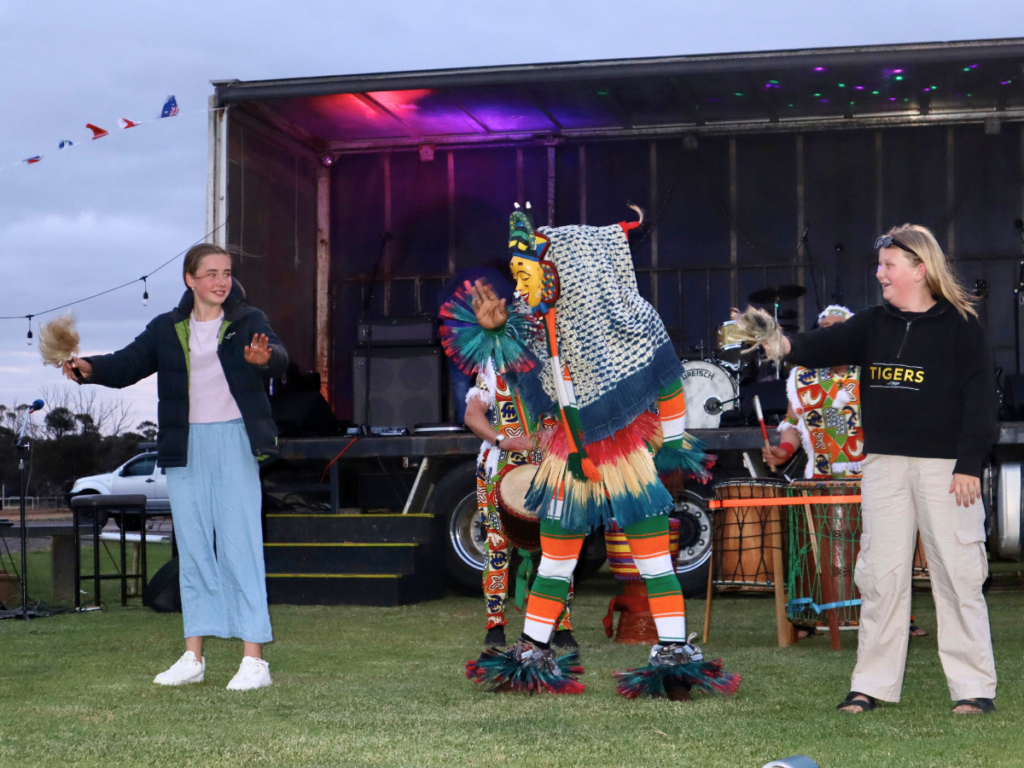
Beyond providing a platform for cultural exchange, the Fusion Festival facilitated opportunities for local businesses, volunteers and community members to come together. The positive experiences shared during the Festival cultivated ongoing relationships, community pride and strengthened the sense of place.
The grant not only supported the realisation of the Fusion Festival but also served as an opportunity to model a youth-led project in the community, highlighting the substantial value young people bring to creating a resilient and vibrant community.
The Fusion Festival was honoured at the Kimba District Council’s 2024 Australia Day Awards as the Community Event of the Year, recognising the significant impact and lasting positive influence it had on the community.
NFPs and local organisations can apply for up to $10,000
FRRR and Telstra are inviting applications for funding through Telstra’s Connected Communities Grant Program to provide access to information, technology, education and facilities to strengthen social capital and digital capability.
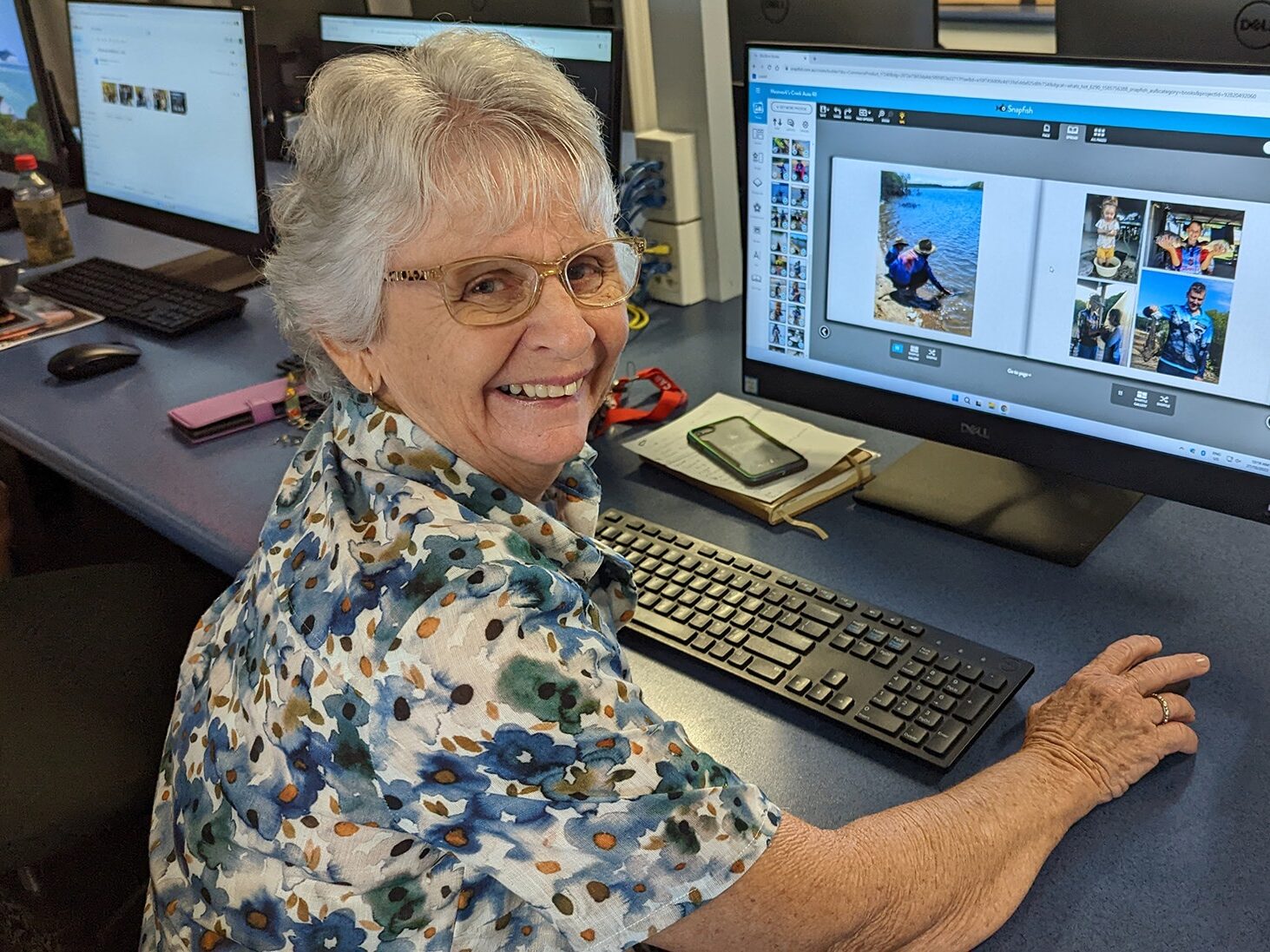
The program aims to boost support for communities across remote, rural and regional Australia to build resilience, improve environmental sustainability and enhance liveability through the power of connection.
In the second round of this program, there is $200,000 available through grants of up to $10,000 to community-led organisations.
The program aims to foster:
- Liveable communities that have digital capability and help to equip individuals with the skills to live, learn and work in a digital society;
- Sustainable communities that are diverse and inclusive, planning for the health, wellbeing, and prosperity of their people and the planet; and
- Resilient communities that are well prepared and socially connected when disaster strikes, with the ability to renew and recover together.
Loretta Willaton, Regional Australia Executive and Regional Customer Advocate at Telstra said that last year’s projects are connecting communities and helping them thrive in a range of ways, both online and offline.
“We’re proud to have been able to enhance community connectedness through last year’s grants, with projects as diverse as upgrading Wi-Fi connectivity, new digital equipment, upskilling volunteers and community members in cyber security, social media and using new systems to support their organisations.
“This year, we look forward to supporting more grassroots groups as they do their important work and keep their communities connected,” Ms Willaton said.
Natalie Egleton, FRRR’s CEO, said that programs like this one help to create more equitable access to the services and support many in urban areas take for granted.
“While there have been improvements, there is still a significant digital divide for remote, rural and regional not-for-profit organisations, particularly when it comes to accessing digital resources and the opportunity to improve knowledge and skills to harness technology to maintain and create connections.
“This partnership with Telstra means that more community groups can find local solutions to these complex problems, thereby creating more sustainable places to live, work and play.
“I look forward to reading this year’s funding requests,” Ms Egleton said.
Applications close at 5pm AEDT on Wednesday, 27 March. Successful grants will be announced in June 2024 and applicants will have 12 months to complete the funded projects.
Potential applicants are encouraged to register for an online Grantseeker Webinar at 12pm AEDT, Tuesday 5 March to learn more about the program and useful tips for applying.
The Kyabram Development Committee consists of an enthusiastic group of locals who recognised the need to inject some excitement, connection and economic support into their community. In the words of one of their committee members the goal was to ‘get Kyabram back on the map’, referencing the town’s off-the beaten track location between popular tourists’ routes. The Committee observed a large strain on the mental and financial wellbeing of their town’s residents, and were determined to do something about these challenges.
A $5,000 grant from FRRR’s Gardiner Foundation Community Grants program was pooled with the organiser, Kyabram Development Committee’s own fundraising, along with funding from the local Bendigo Bank, Ky Valley Dairies and other sources, to put on the Kyabram Tastes & Tunes street festival.
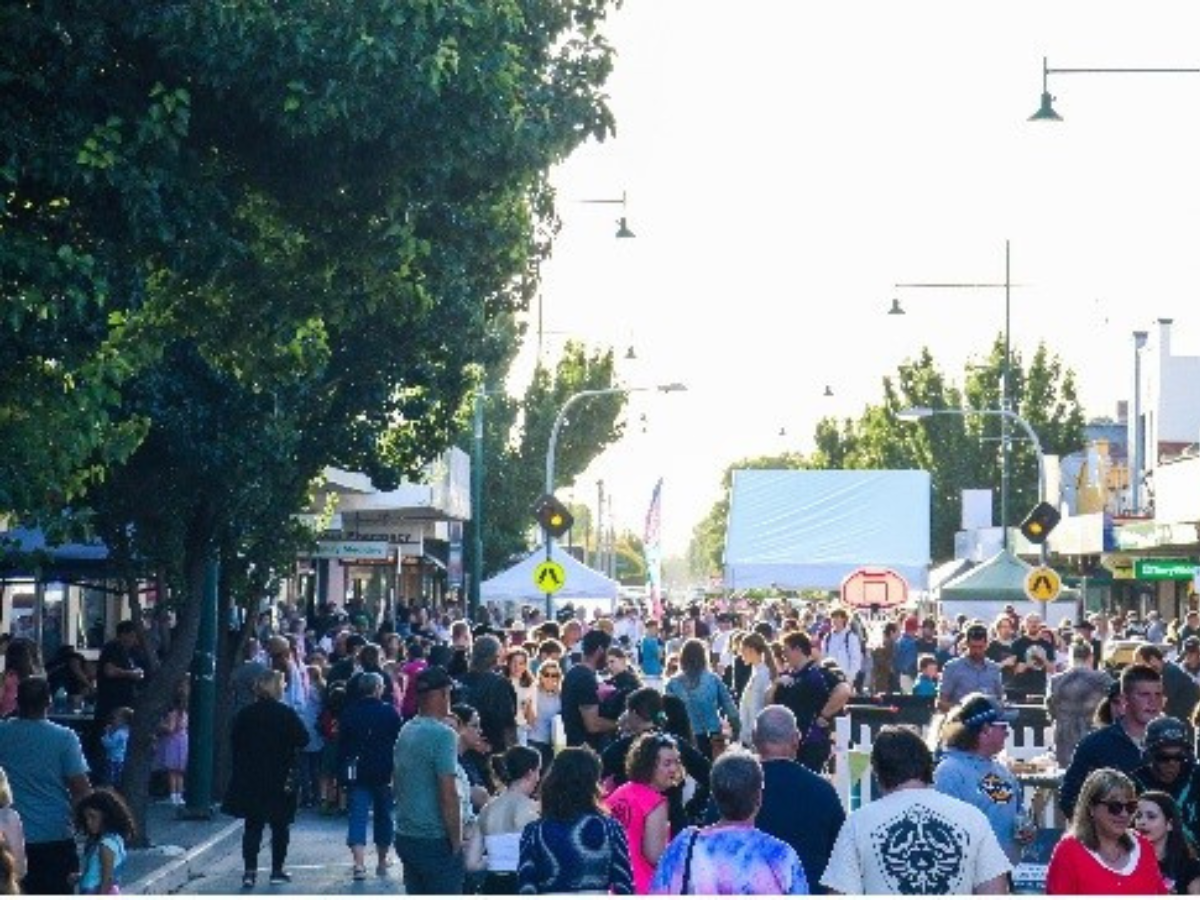
The Festival was successful in meeting its goal of fostering community connections. The Committee aimed to attract 1,000 people, but exceeded this with a bustling crowd estimated at around 4,000, demonstrating the event’s tremendous success. The Festival not only brought significant financial gains for local businesses, but also allowed Kyabram to highlight its strengths by featuring local products and produce. Positioned in the heart of one of Northern Victoria’s largest dairy and fruit orchard regions, the Festival provided numerous tasting opportunities. Additionally, it underscored why Kyabram is a fantastic place to live.
The FRRR grant funded Festival entertainment, which featured diverse offerings to attract all age groups. For children there were activities like face-painting, Youth Club games, fairy floss, and more. Adults enjoyed live music from both local performers and internationally recognised acts such as The Baker Boys. The town buzzed with people mingling and enjoying good company, delicious food and entertaining performances.
Committee member Tania reported that the night was amazing and it’s been suggested it’s the best family event ever held in Kyabram. This event went a long way towards the Committee’s aim of making it an annual, unmissable opportunity to visit the town.
The Kyabram Tastes and Tunes Festival certainly achieved many of FRRR’s Gardiner Foundation Community Grants program objectives. It effectively contributed to building community resilience, fostering cultural vibrancy, strengthening economic vigour, and importantly, improving community health and social wellbeing. On a final note, the Kyabram Development Committee thanked FRRR and the Gardiner Foundation for their donation, emphasising its vital role in the success of the event.
In the Victorian dairy region of Gippsland, a small primary school identified challenges with the gender imbalance at their school and came up with an idea they felt could address the matter and improve the learning outcomes of their students.
Welshpool and District Primary School applied for a Gardiner Foundation Community Grant in 2022. At that time, they had 32 enrolled students, seven of which were girls (22%) and 25 (78%) boys. Recognising the need to support the girls in their school and promote connection and empowerment, the community secured a $5,000 grant. This grant allowed the school to further invest in their science program, via the ‘IncrediGirls’ program, with a focus on the girls within their school.
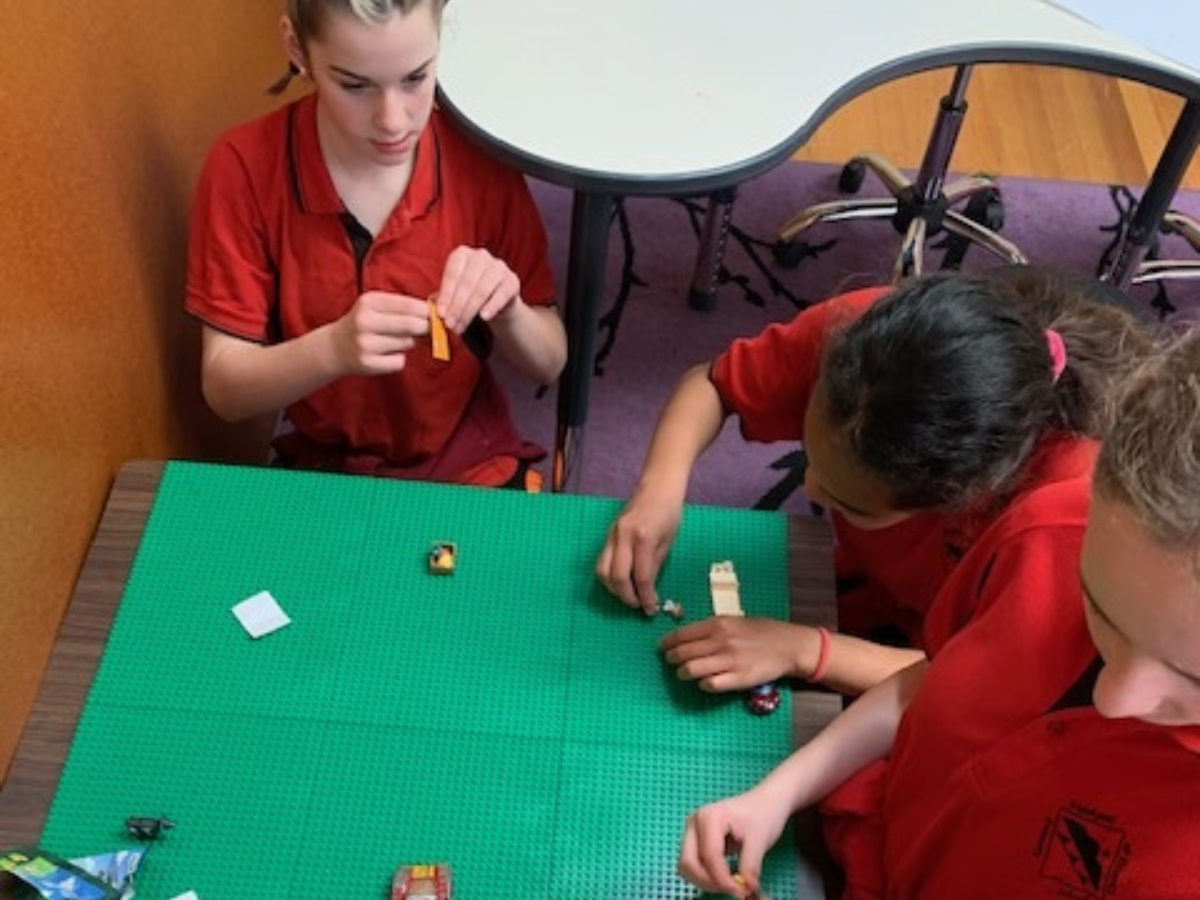
The ‘IncrediGirls’ program delivered science, technology, engineering and mathematics (STEM) activities to the girls in the school. The participants were then encouraged to share the same experiences with other students in their class, with the support from their teachers. The program also featured guest speakers from the community, fostering connections beyond the school. Activities encompassed a variety of events such as RUOK day, shop visits, STEM-focussed sessions, Kinder transition books, LEGO build days (as shown in the image), and more.
This project aligned with FRRR’s Gardiner Foundation Community Grants program objective of ‘Providing Lifelong Education and Training’ via projects that provide locals with access to opportunities that enrich their learning and skills development. The implementation of the ‘IncrediGirls’ program at Welshpool and District Primary School created opportunities for students to develop an interest and passion for STEM skills. Additionally, it indirectly fostered teamwork, connection and leadership opportunities.
Gabrielle Boyd, the principal of Welshpool and District Primary School expressed gratitude from the school and the students for the grant.
“This has been such a fantastic grant opportunity for our school. The students were very excited to know they had been selected to receive the grant and the ‘IncrediGirls’ loved being involved in the spending of the funds as well.”
She continued saying, “The program has contributed to improvements in self-esteem, teamwork, friendships, connections and has broadened students’ perspectives globally, shifting the focus beyond themselves. This has, in turn, enhanced community life in this small, outer regional community.
“Our school is very proud that the ‘IncrediGirls’ program is not only thriving within our school but, thanks to the positive outcomes, is also expanding to other schools in the region.”
The small town of Abergowrie, on the lands of the Warrgamay people, is a thriving farming community located 40 km north-west of the township of Ingham in north QLD. The small but vibrant Abergowrie State School is one of 100 Queensland schools with fewer than 20 students and plays an important role as a hub for the broader community, with facilities used as a disaster recovery centre, polling place, community library, along with hosting preschool playgroups, social events and community activities.
With strong ties to local history, the school community regularly looks for ways to foster new partnerships, strengthen existing relationships and promote community connections. Encouraging cultural diversity and awareness is a priority for the school community, understanding that promoting an open and welcoming learning environment strengthens wellbeing, both within the school grounds and more broadly across the community. To achieve this, integrating spaces and experiences within the school that reflect cultural connection is vital, to both students, families and others.
To create an inclusive and culturally appropriate space, the Abergowrie Primary P&C Association (APP&C) applied for funds through the Strengthening Rural Communities program to deepen cultural understanding and community engagement through the building of a landscaped Yarning Circle. The volunteer run APP&C plays an important role promoting parent participation and encouraging collaboration between parents, students and the local community to achieve the best educational outcomes and learning experiences for the children in a fun and safe environment.
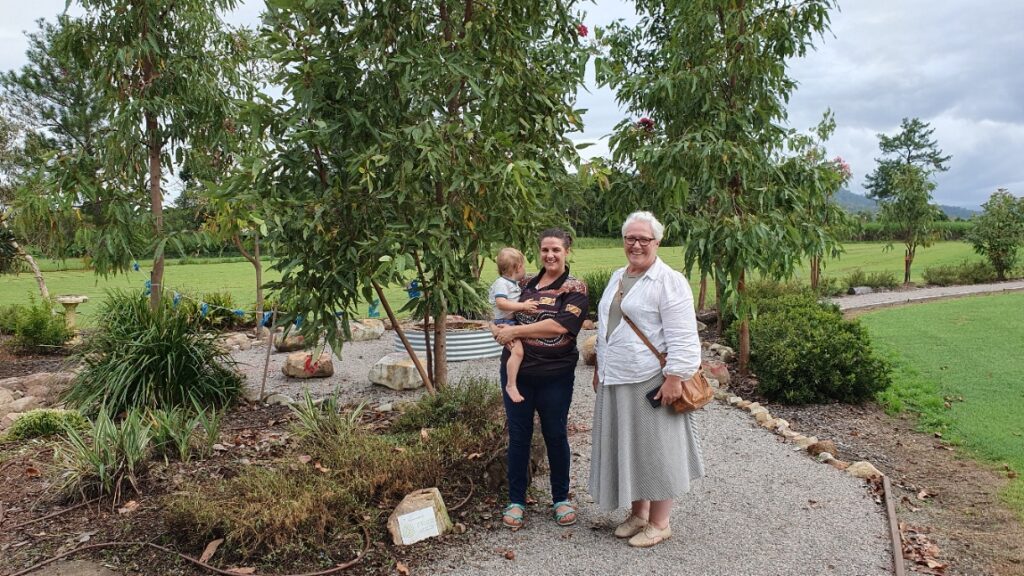
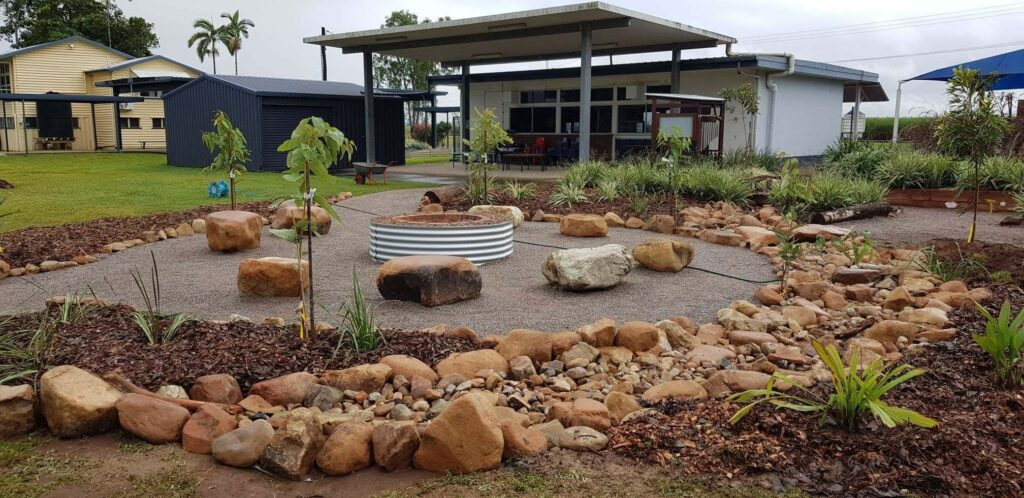
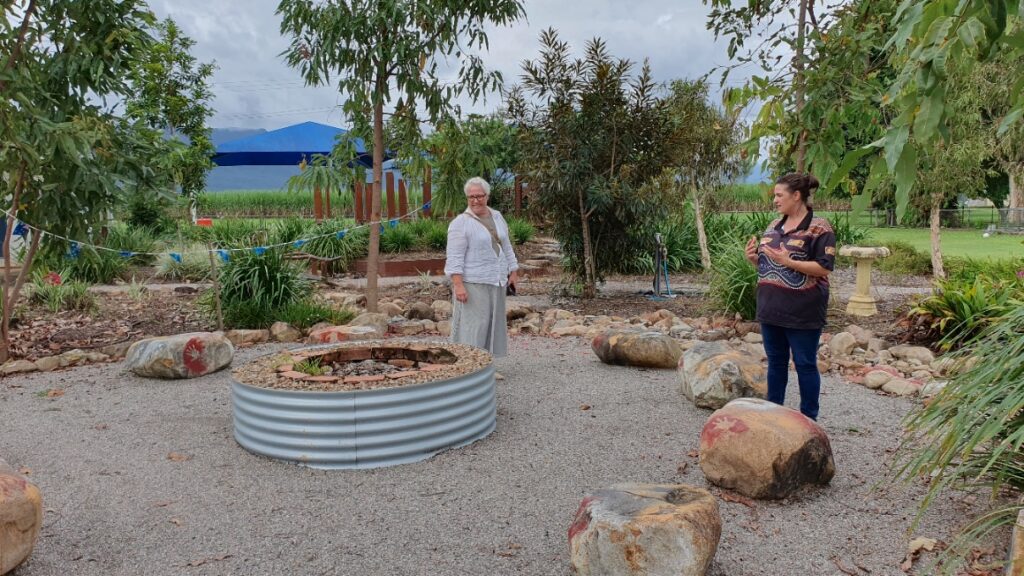
The Warrgamay people are the traditional custodians of the land that Abergowrie State School resides on and the APP&C Association wanted the Yarning Circle to reflect their culture and spirit. Yarning circles have been used by Australia’s First Nations peoples for centuries and are a place of honesty, trust, respect and safety where every person in attendance is equal. They’re used to teach new generations about the past and engage them with culture for the future.
To ensure the project was culturally respectful, the school community engaged two Aboriginal Elders of the Warrgamay people to help deliver the project. The Elders offered to help shape the design of the Yarning Circle and provided guidance on ways the Yarning Circle could be used by the school and the community. They also helped plan cultural aspects into the design of the Yarning Circle, including paintings and artwork. Lead by the Elders, the students were involved in this part of the project providing a cultural learning experience and encouraging them to taking ownership of the Yarning Circle creation.
True to the spirit of collaboration, the primary school also drew on the close ties with nearby St Teresa Secondary College, which promotes rich and diverse cultural learning programs for young people with an Aboriginal and Torres Straight Island background. St Teresa College provided cultural knowledge and expertise to the project, and the space continues to be used for shared experiences between the schools.
The $10,000 grant, which was funded by The Yulgilbar Foundation, paid for the materials and services of the landscaper and builders. With the project costing more than the requested amount, the APP&C negotiated ways to reduce the overall cost, which involved local donations of materials and a community working bee. With many hands on-deck, the project was completed over a weekend. Those helping included students, school parents, grandparents, teaching, cleaning and ground person staff, Warrgamay Elders and community members. The APP&C shared with the FRRR team that it was a fun, rewarding weekend that connected all of those involved.
The completed Yarning Circle is set among gardens with native trees providing shade and a beautiful, calm setting. When termites were discovered on the site, impacting the materials that could be used as seating around the fire pit, challenges were viewed as opportunities with timber logs swapped for large natural rocks, fitting in with the Australian bush setting seamlessly. A fire pit was built in the centre of the Yarning Circle using kiln-fired bricks, with a lid that’s placed over the pit when it’s not in use to create a functional surface.
By building this space, the APP&C hoped to encourage confidence and resilience in students and foster an attachment to culture and their surrounding environment.
Since completion, the Yarning Circle area has brought people together for the official opening smoking ceremony, dances, informal gatherings, and has been incorporated into student learning. Abergowrie Primary School P&C continues to encourage the community to be involved in social activities and events where the Yarning Circle plays an integral role. Through the creation of this inclusive, culturally appropriate space, the broader community can continue to be involved in community conversations in a safe and accepting environment to encourage connections and ties to community, place and self, as the comments below attest.
“Through this project, the community created a space in the school that has brought people of all walks of life together. During construction, there were discussions of absolute excitement between all involved, and in particular between the school parents and teaching staff and the Warrgamay Elders. These talks were full of energy and openness on how this space will be the platform that will bring cultures together and make us all a stronger group of people. I speak as a parent of three girls who attend Abergowrie State School when I say that I am filled with joy to be working with members of the Warrgamay people and knowing that my children will be a part of this collaboration. The Warrgamay people have an abundance of passion for sharing their cultural knowledge and being part of our school’s journey. This I am very proud to be a part of.”
“We are very grateful for the Aboriginal Elders’ involvement and excitement towards this project and feel that this could truly become a place of significance in the Abergowrie community.”
“For small schools like ours, it is very challenging for our P&C to make a significant contribution to the learning experience of our children. Grants like this make it possible for our parent community to really contribute to our kids’ journey through school.”
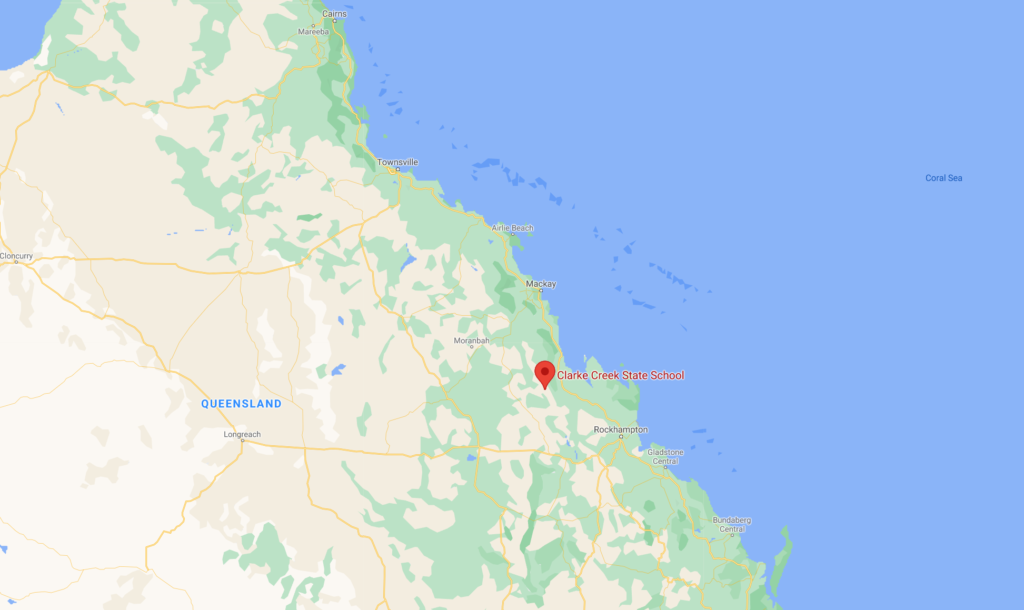
In the remote locality of Clarke Creek in Queensland’s Isaac Region, a community of 320 people have been doing it tough in recent years. In March 2017 Tropical Cyclone Debbie and flash flooding devastated the area, and then came the drought.
People from Clarke Creek mostly own or work on cattle stations, many run by extended and intergenerational family groups. School-aged children in the area were exposed to many impacts of Cyclone Debbie – from damage to community and family infrastructure, livestock and pet animal losses, to financial strain putting pressure on their families.
A problem-solving school
The saving grace of this community is the Clarke Creek State School (CCSS), which, in the absence of a township, serves as the community hub. It caters to the needs of 17 students from Kinder to Year 6, extends support to siblings, parents and extended families of those students, and provides a meeting place for all groups in the area, including the P&C Association.
The Clarke Creek P&C Association knew it was critical to support children through all this, and that school can help facilitate healing by providing the sense of normality that’s needed after a disaster. Since residents of Clarke Creek had to travel up to 230kms to access health and professional services, the P&C Association knew that, for help to be constructive, it would need to be brought into Clarke Creek.
The school had previously gained the services of a chaplain directly though the National Schools Chaplaincy Program, however the school could only afford one visit per fortnight without outside funding. By late 2018, it was clear that there was a need for ongoing disaster support for families. With so many pressures affecting the ability to fundraise locally in the tiny community, the P&C Association applied to FRRR’s In a Good Place program. A grant of $10,000 funded by CCI Giving essentially doubled the chaplain’s visits to weekly from July 2019 until March 2020, when the Department of Education funding applications opened.
Chaplaincy support proves vital
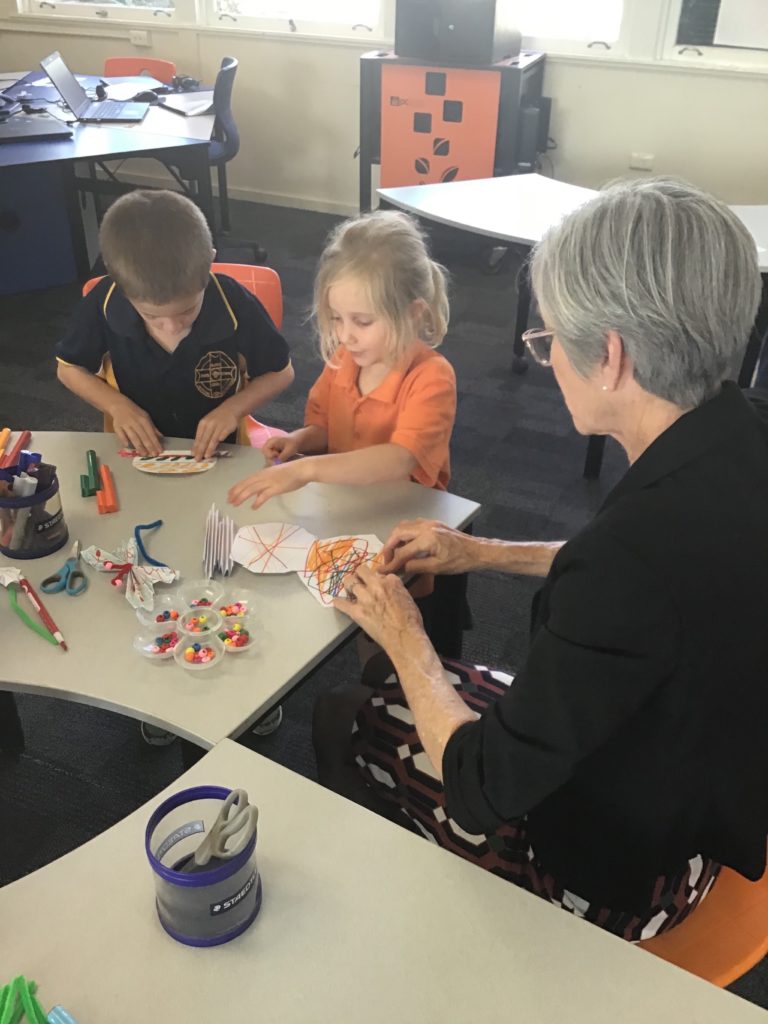
In small schools, the school chaplain is often the welfare provider, and plays a key part of the school support team.
The chaplaincy support at CCSS started shortly after the school and community were devastated by cyclone Debbie, and proved to be highly valuable to students, staff and the broader community, in their ongoing recovery and general mental health and wellbeing. The chaplain attends the school one day each week, working with the children in groups and one on one sessions. She provides emotional support and fosters leadership and kindness in the classroom, playground, and at school events.
“Chappy’, as she is fondly nicknamed, has been imparting those crucial life skills to the children and helping them to deal with the many challenges unique to living in a remote community in an isolated context.
It was a crucial time to bring in extra support, and the P&C Association don’t make light of the importance of Chappy’s role. Throughout COVID-19, the chaplain helped children deal with changes to their learning and became a central figure of stability for parents and the wider community.
The CCSS Principal notes how important the chaplain is in helping students transition through their education.
“I think the older students love the way she makes sure they all know that they have a voice and that someone cares enough to make the time to listen. She helped prepare older students for boarding school, and taught younger ones to be engaged in learning and practising kindness.”
The chaplain attends school and community events, and works with other schools in the cluster, thus creating support networks in the broader communities and creating an inclusive atmosphere and strengthened sense of community. But it’s the flow-on effects from the children’s gains that have the greatest power, as described in the final report:
“Our greatest achievement has been just stabilising our community. Oddly, this was really achieved through the children coming home from school with this positive energy and outlook from their time with Chappy, rather than working direct with parents and community. When the parents knew the kids would be ok and had someone strong to lean on, it was like a weight lifted and the school became the place of ‘normalcy and support’. Things picked up from there.
“In a small school and community, we have to stick together. Chappy has fostered this sense of belonging and caring in our children and it emanates from there.”
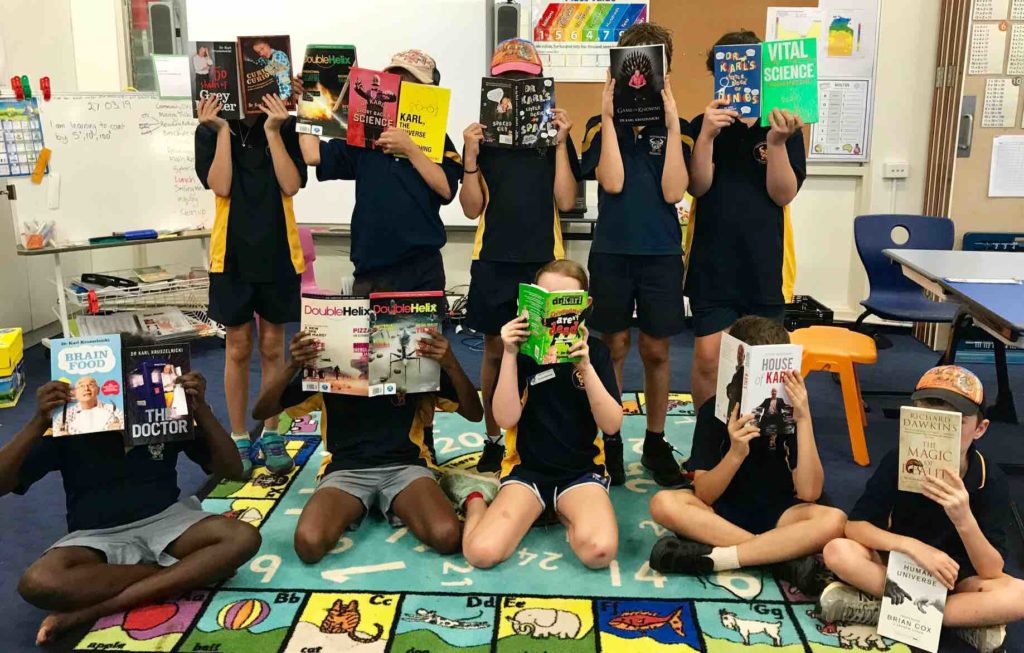
Did you know that some schools in remote Australian communities might have as few as 15 books in their library?
That discovery in 2017 prompted Corey Tutt to start sourcing and supplying resources himself, initially from his personal library. DeadlyScience Limited was established in 2020, and is now a registered charity. Through DeadlyScience, Corey is seeking to inspire a new generation of scientists.
It focuses on providing Science, Technology, Engineering, and Mathematics (STEM) and early learning reading resources to remote Australian schools to help increase engagement.
The initial priority is schools with a high proportion of Indigenous children. Where possible, and appropriate, DeadlyScience sources materials from Indigenous authors, artists, and translated versions in Indigenous languages. In the three and a bit years since inception, DeadlyScience has had more than 110 schools requesting resources.
They have delivered more than 16,000 books, 500 telescopes (and basic science kits), 80 educational resources and six greenhouses (plus seeds, and educational materials to support food production projects) to more than 100 Australian schools and/or communities.
This growth looks set to continue as the organisation gains more momentum and profile. Another key activity involves maintaining a website to support teachers in remote schools with access to high quality scientific research and relevant experts in their fields (also of Indigenous background, where possible).
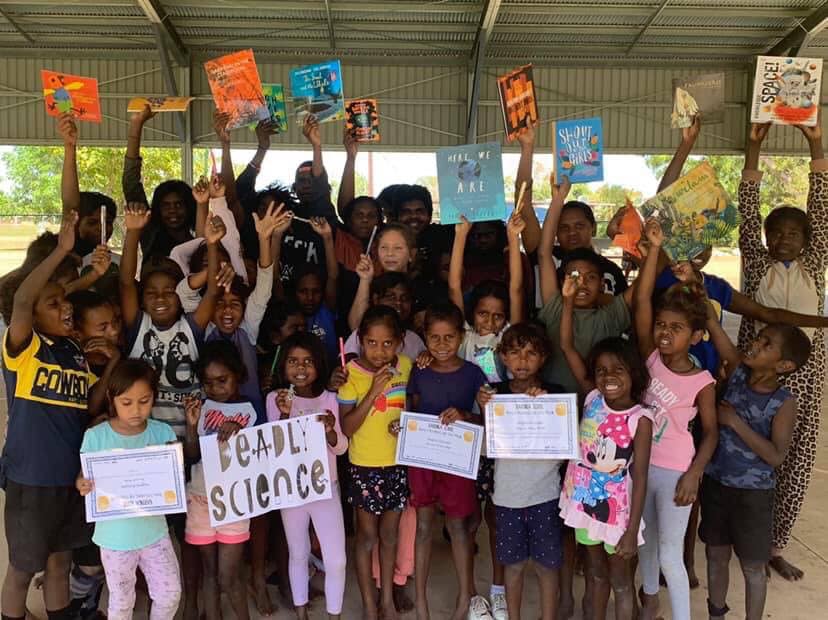
In 2020, DeadlyScience partnered with FRRR to set up a Not-for-Profit Fundraising Account, allowing them to attract tax deductible contributions from a broad range of donors to expand their activities and support the overall capacity and operations.
You can add your support by donate securely online, or check out the DeadlyScience website to learn more about their work.
To learn more about opening a Not-For-Profit fundraising account, get in touch with Jo Kemp.

